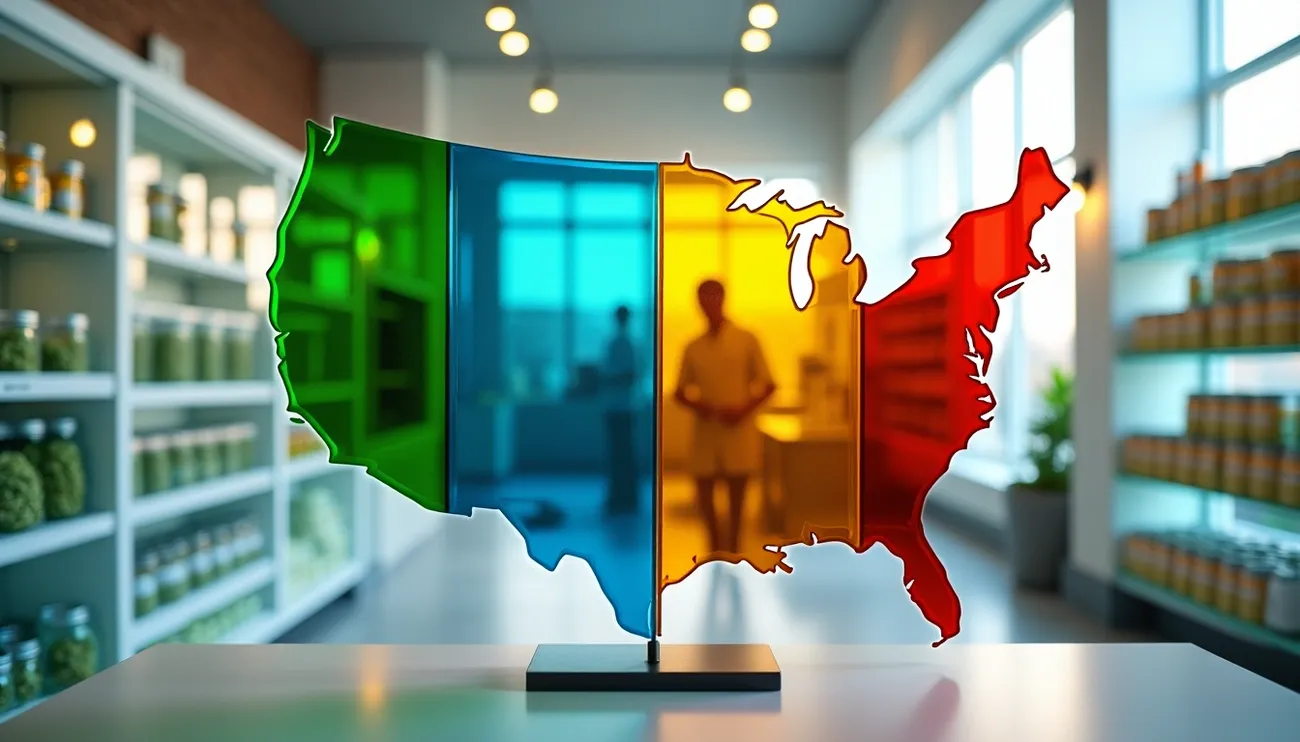Navigating the Conflict: Federal vs State Cannabis Laws
In recent years, cannabis legislation has become a dynamic and contentious issue within the United States.As more states move to legalize cannabis for medical and recreational use, the discrepancy between federal and state laws becomes increasingly pronounced.Understanding the maze of cannabis regulation is critical for business owners, consumers, lawmakers, and legal professionals alike.
In this article, we will delve into the complexities of federal versus state cannabis laws, explore the benefits and risks associated with this legal dichotomy, and offer practical guidance on navigating these challenges.
Understanding Federal and State Cannabis Laws
At the federal level, cannabis is classified as a Schedule I substance under the Controlled Substances Act of 1970.This categorization places it alongside drugs like heroin and LSD, indicating a high potential for abuse and no accepted medical use.
Despite this federal stance, individual states have taken varied approaches to cannabis legalization.
As of 2023, over 30 states have legalized cannabis for medical use, and nearly half allow it for recreational purposes.Yet, this creates a patchwork of laws that can be confusing and contradictory for those affected by them.
The difference between federal and state cannabis laws manifests in multiple ways, from law enforcement and banking to public policy and healthcare.
For instance, while a business may legally operate a cannabis dispensary in a state where it is approved, federal restrictions may hinder its ability to access traditional banking services.
People consuming cannabis for medical purposes in states where it is legal still face potential federal repercussions, which complicates their healthcare and legal standing.
Benefits and Risks of Federal and State Law Discrepancy
The state-driven legalization allows regions to address their unique social, economic, and medical needs independently of federal control.
States that have legalized cannabis often report increased tax revenue, reduced law enforcement costs, and increased job opportunities.
For example, Colorado, one of the pioneering states, witnessed over $12 billion in total cannabis sales by 2020, generating significant tax revenue that has been reinvested into community services and infrastructure.
However, the discord between federal and state laws presents substantial risks.
Businesses operating legally under state laws face federal prosecution, thus impeding industry growth and stability.Additionally, consumers may find themselves entangled in legal issues if they cross state borders, inadvertently violating federal laws.
There remains a persistent stigma and public health concern surrounding cannabis use, necessitating comprehensive research and education to bridge the gap between public perception and scientific understanding.
Practical Tips for Navigating Cannabis Regulations
To effectively navigate the complexities of cannabis legislation, one must stay informed and proactive.
Here are several strategies to consider:
-
- Stay Informed: Regularly follow updates from reputable sources such as the National Conference of State Legislatures to keep abreast of evolving cannabis laws across states.
-
- Consult Legal Experts: Engaging with attorneys who specialize in cannabis law can provide valuable insights and prevent costly legal missteps.
-
- Understand Your Rights: Knowing the specific regulations in your state and any federal implications can help mitigate risks, especially for entrepreneurs and consumers.
-
- Advocacy and Community Involvement: Joining advocacy groups can lend support to efforts aimed at reconciling state and federal legislation, thereby empowering collective change.
Conclusion
The friction between federal and state cannabis laws remains a complicated but critical issue for those involved with the industry.While state legalization brings numerous benefits, the overarching federal prohibition poses significant challenges that must be navigated carefully.
By staying informed, seeking expert guidance, and participating in advocacy, individuals and businesses can better manage the legal landscape.
As societal attitudes toward cannabis continue to evolve and legislation adapts, it’s imperative to stay engaged with ongoing discussions and reforms.
If you’re eager to delve deeper, consider exploring other resources or sharing your perspectives in the comments section below.
FAQ: Federal vs State Cannabis Laws
What is the difference between federal and state cannabis laws?
Federal cannabis laws classify marijuana as a Schedule I controlled substance, making it illegal for all purposes. State laws vary, with many allowing medical and recreational use under regulated conditions.
Can state-legal cannabis operations face federal prosecution?
Yes, because cannabis is illegal under federal law, businesses and individuals in states where it is legal for medical or recreational use may still face federal prosecution.
How do federal laws affect cannabis banking?
Federal laws make it difficult for cannabis businesses to access banking services as many banks are federally insured and avoid servicing companies in violation of federal law.
What impact do federal laws have on cannabis research?
The classification of cannabis as a Schedule I substance imposes strict regulations on research, making it challenging to obtain federal approval and funding for cannabis studies.
How do federal and state cannabis tax regulations differ?
Federal tax laws disallow typical business deductions for cannabis companies due to its illegal status, while state taxes vary and can include specific excise taxes on cannabis sales.
Share this content:



